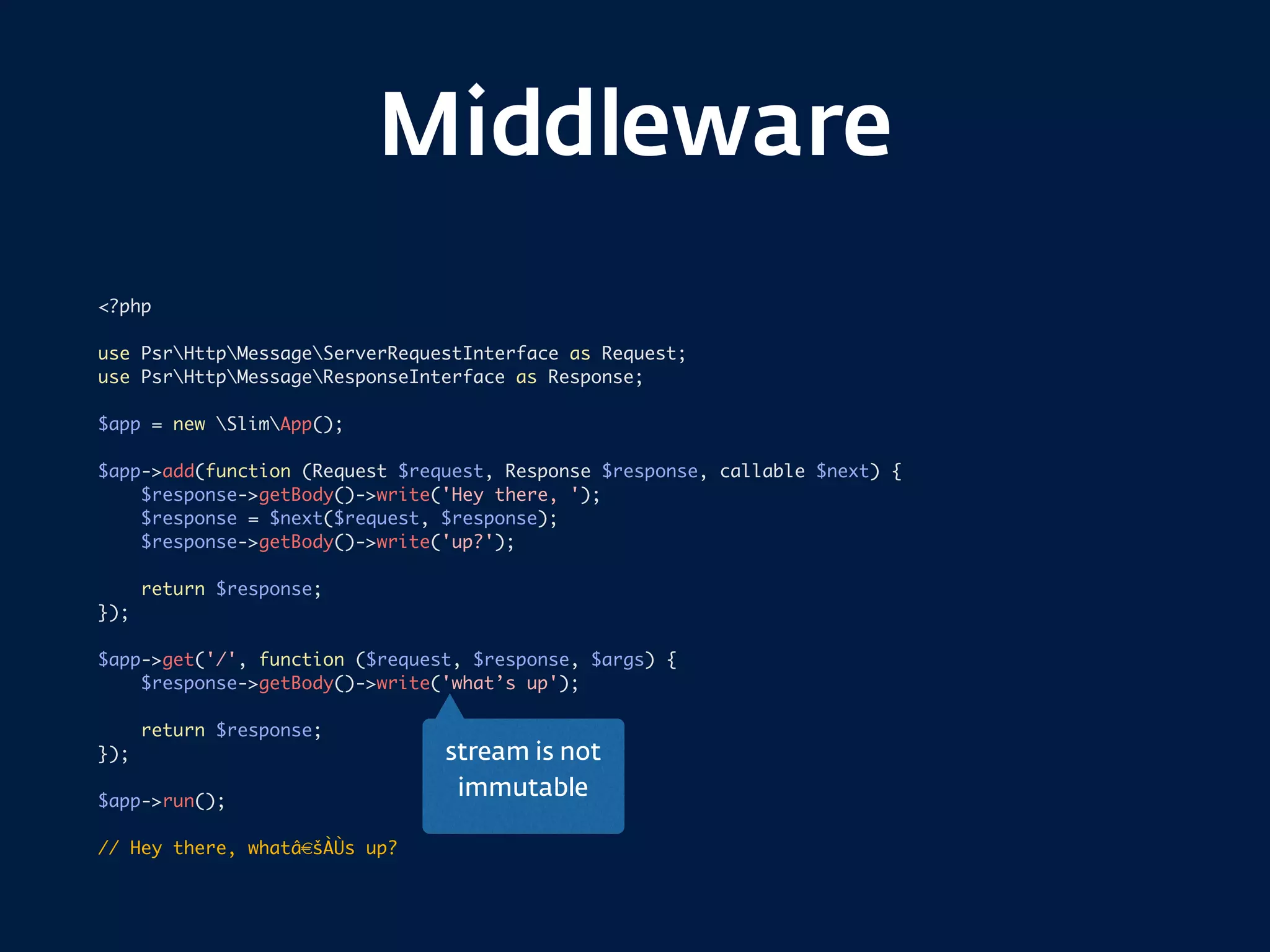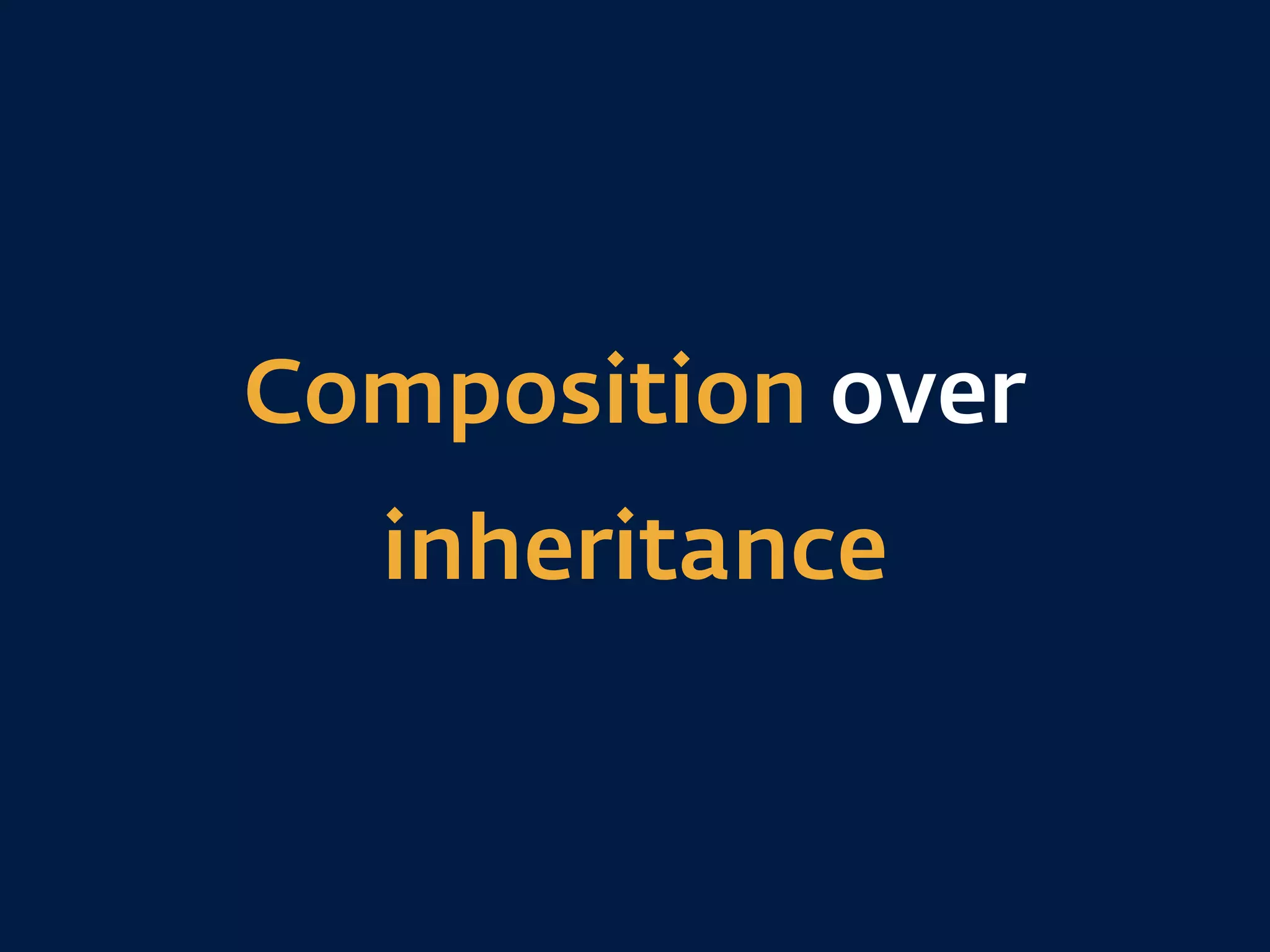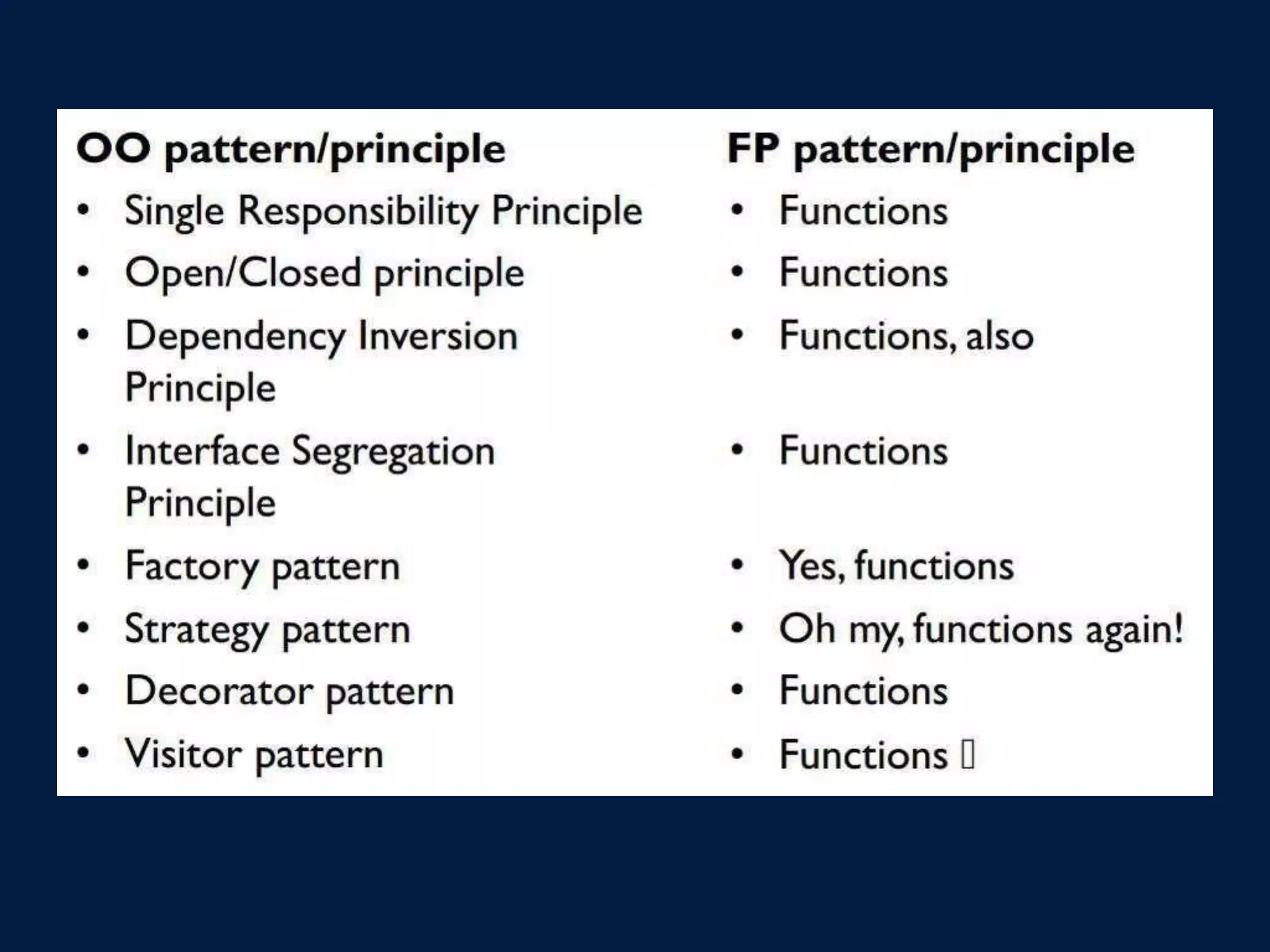The document discusses functional programming in PHP, highlighting key concepts such as higher-order functions, recursion, and immutability, with examples in both PHP and Erlang. It emphasizes the importance of functional thinking and the impact of side effects in programming. The presentation also touches on middleware and service objects within the context of web development using Symfony and PSR standards.



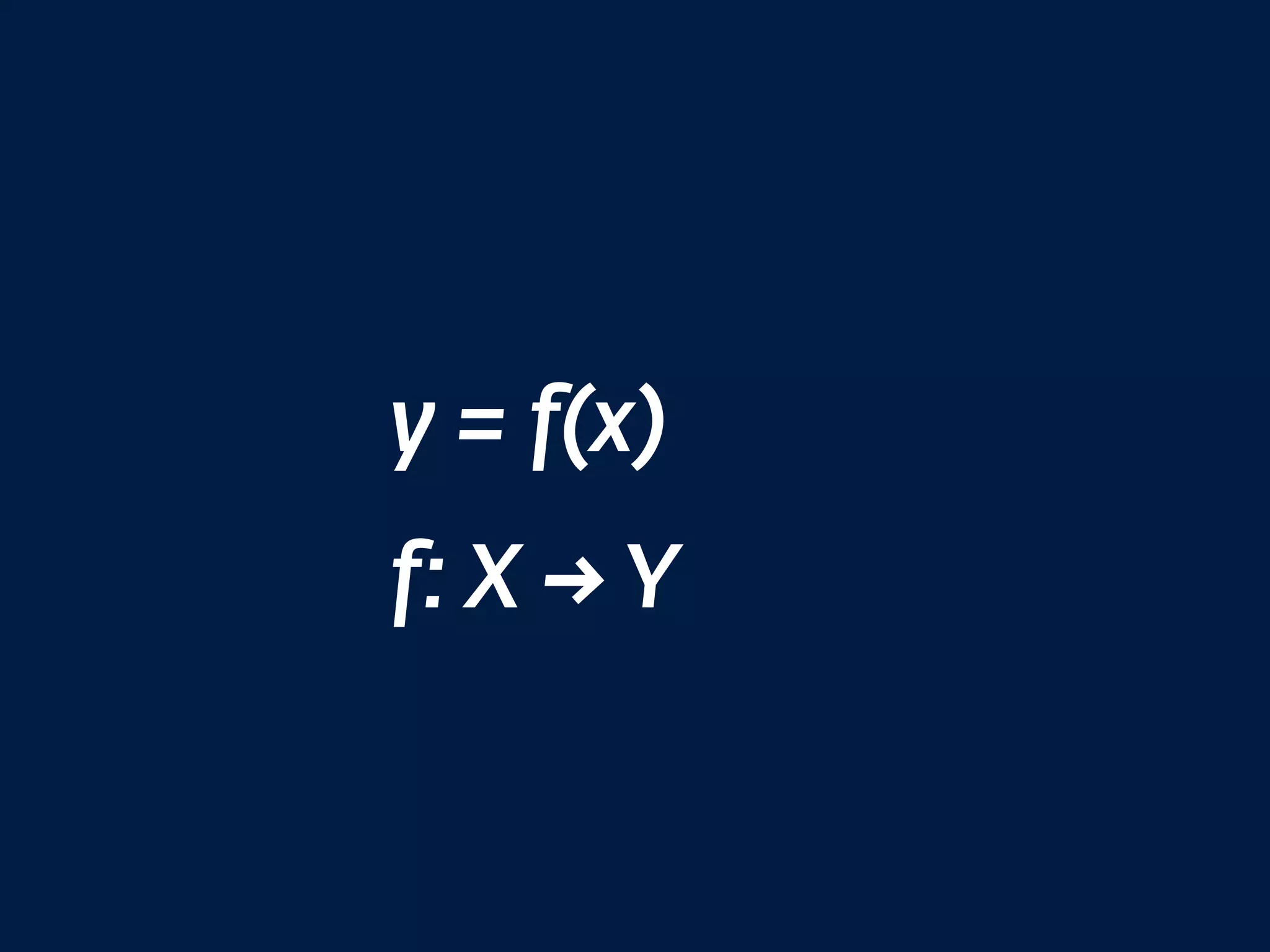
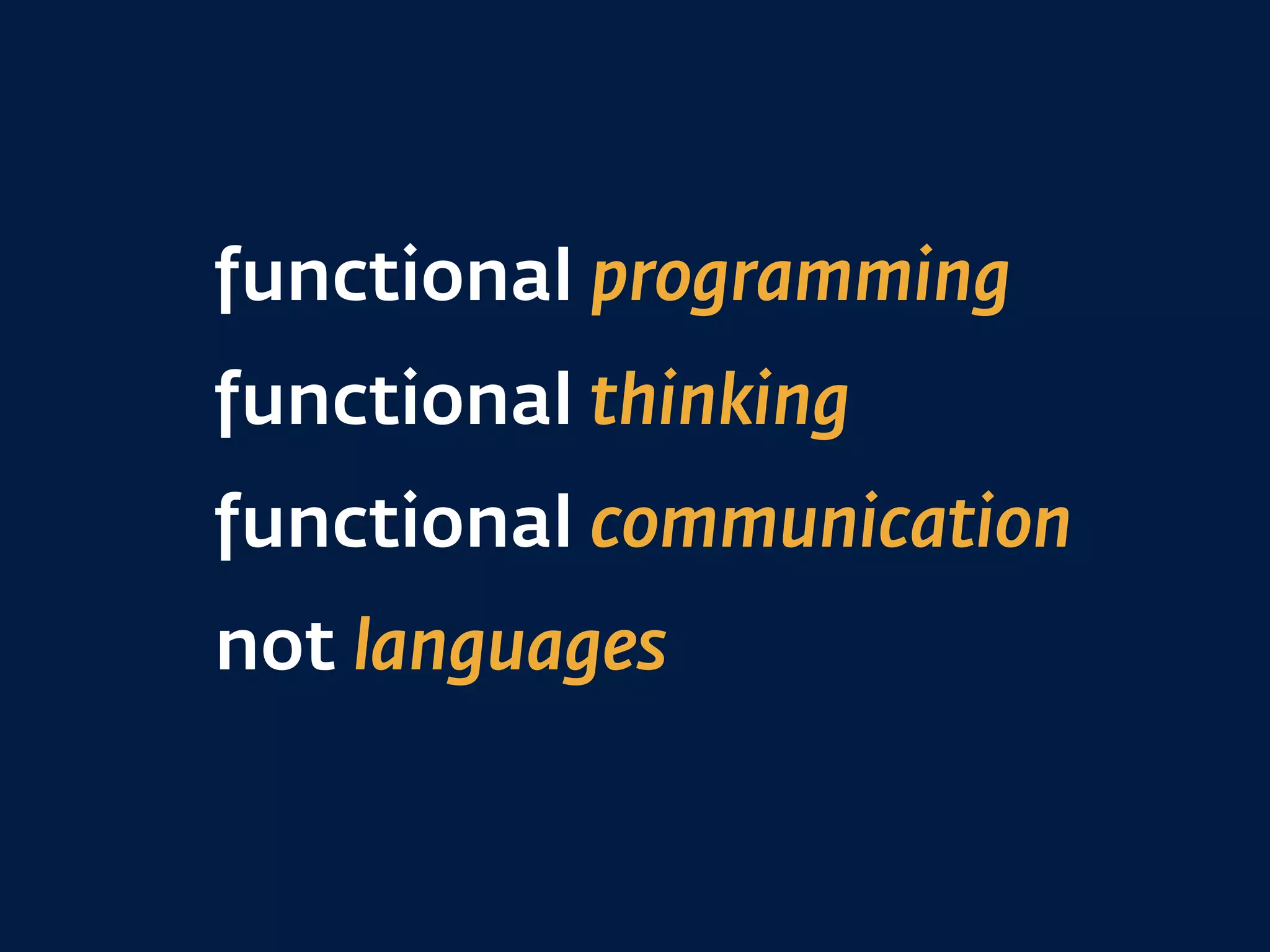

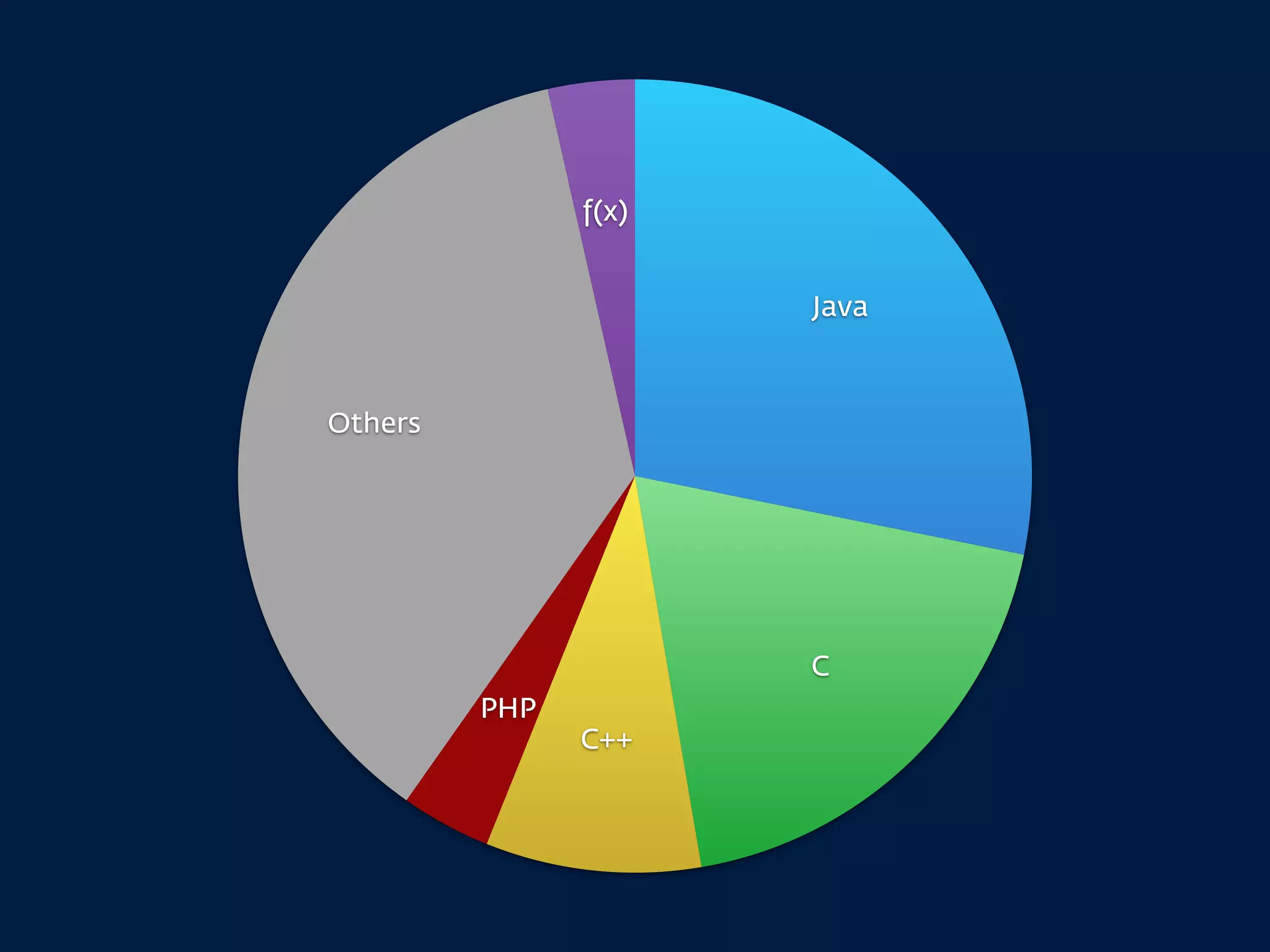


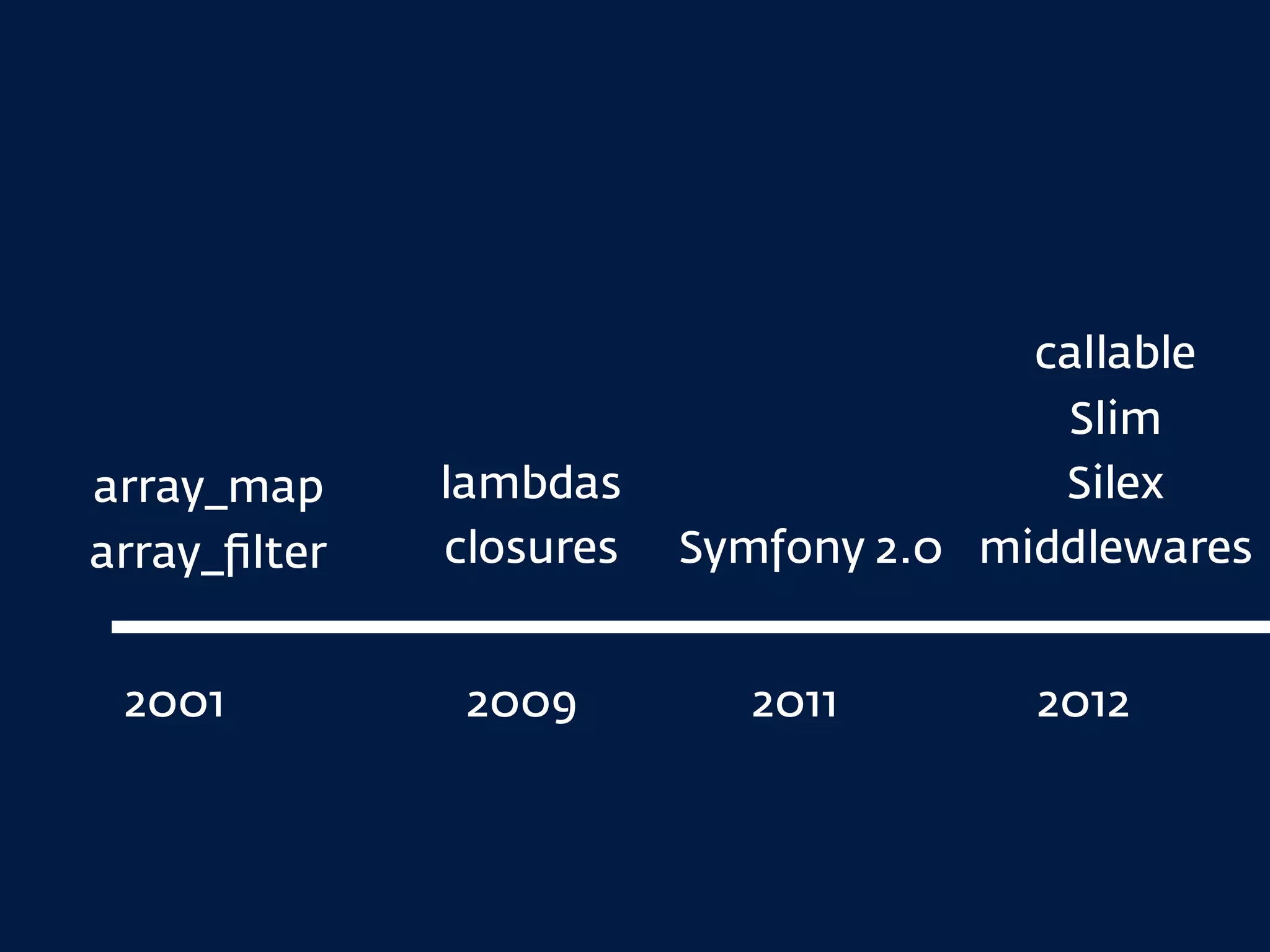
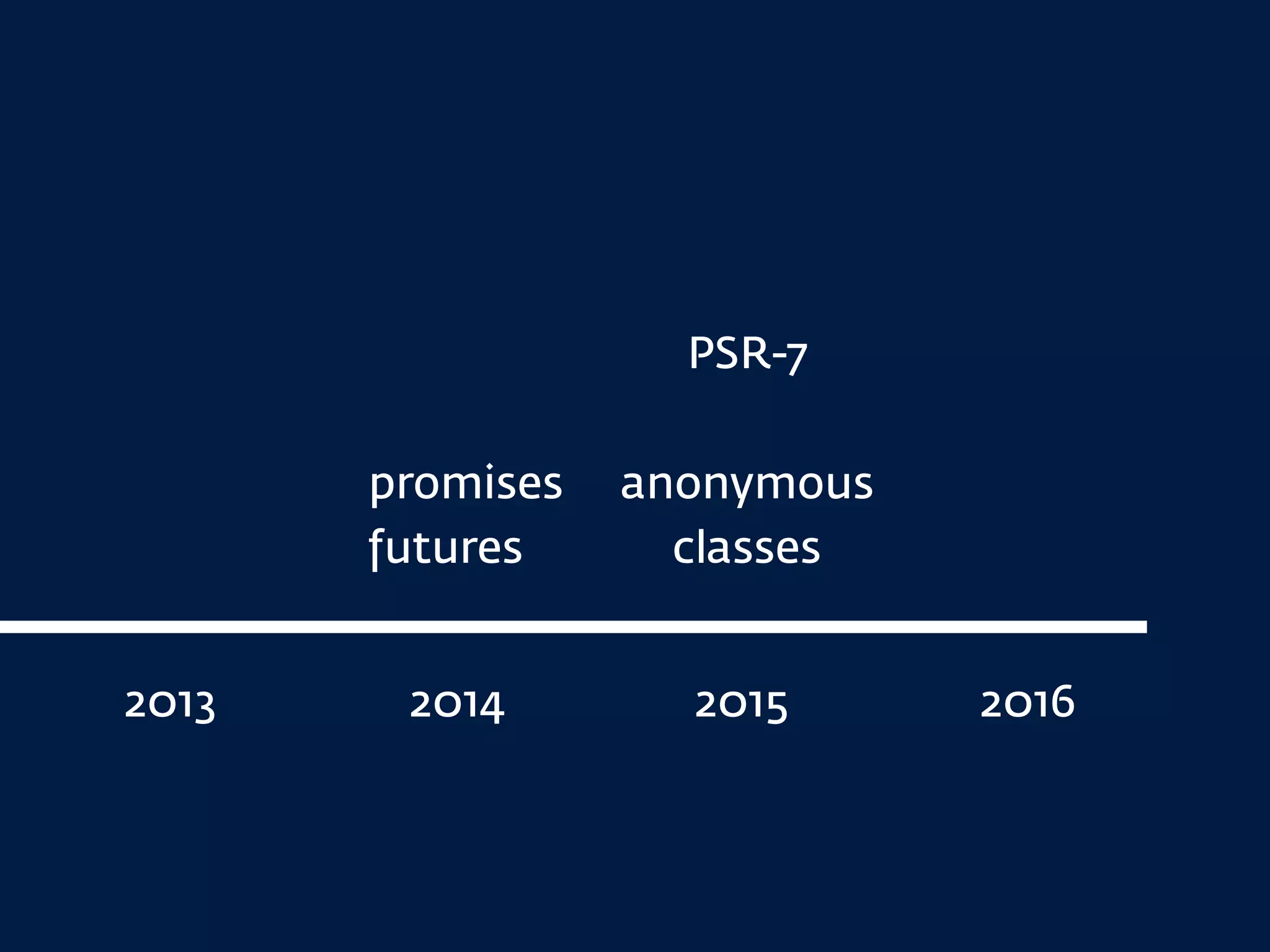





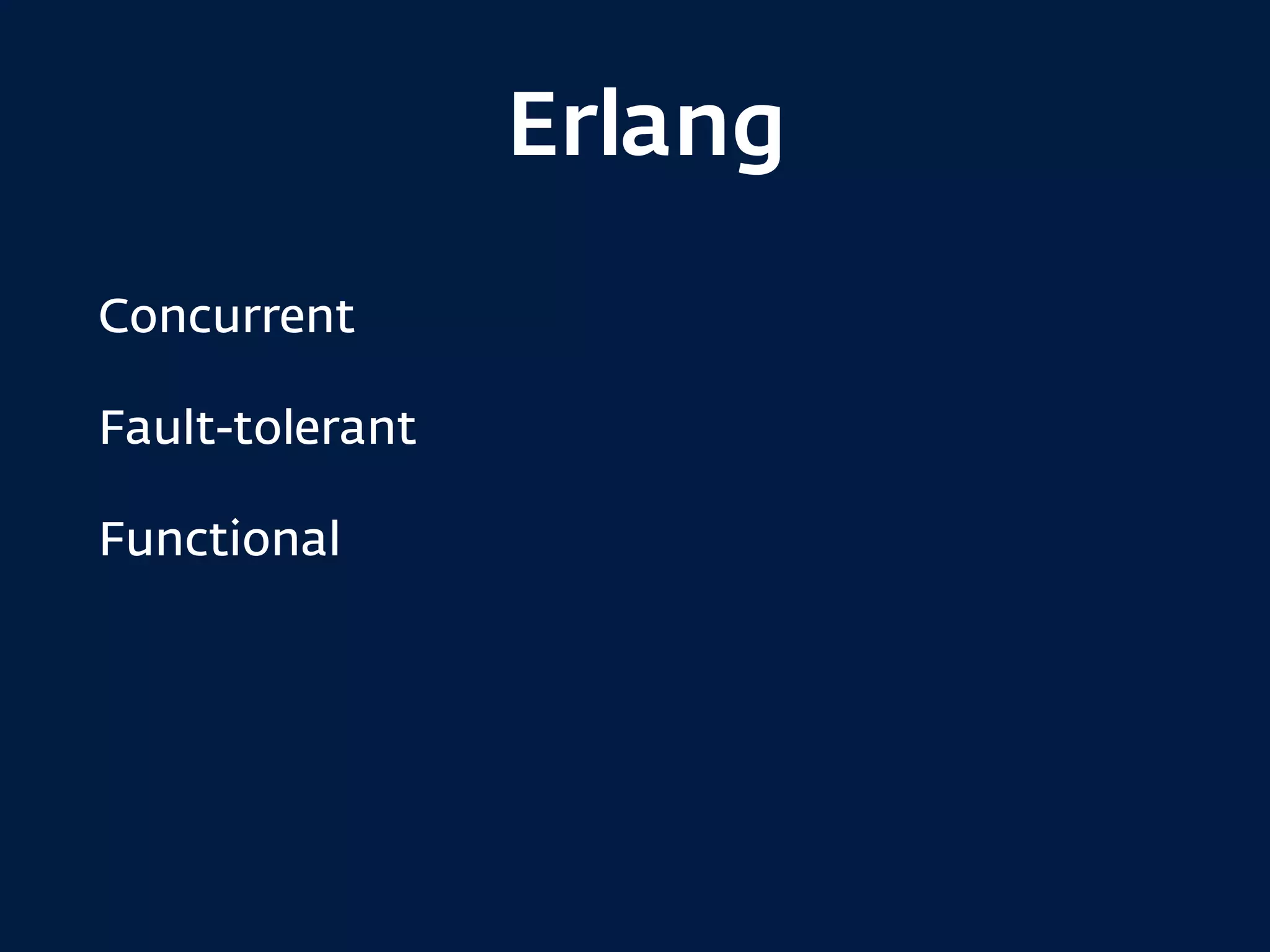
![Let’s begin
$ brew install erlang
$ erl
Erlang/OTP 18 [erts-7.2.1] [source] [64-bit] [smp:4:4] [async-threads:
10] [hipe] [kernel-poll:false] [dtrace]
Eshell V7.2.1 (abort with ^G)
1>
on OS X
REPL](https://image.slidesharecdn.com/beingfunctionalinphpsfugnl2016-160404194530/75/Being-functional-in-PHP-18-2048.jpg)

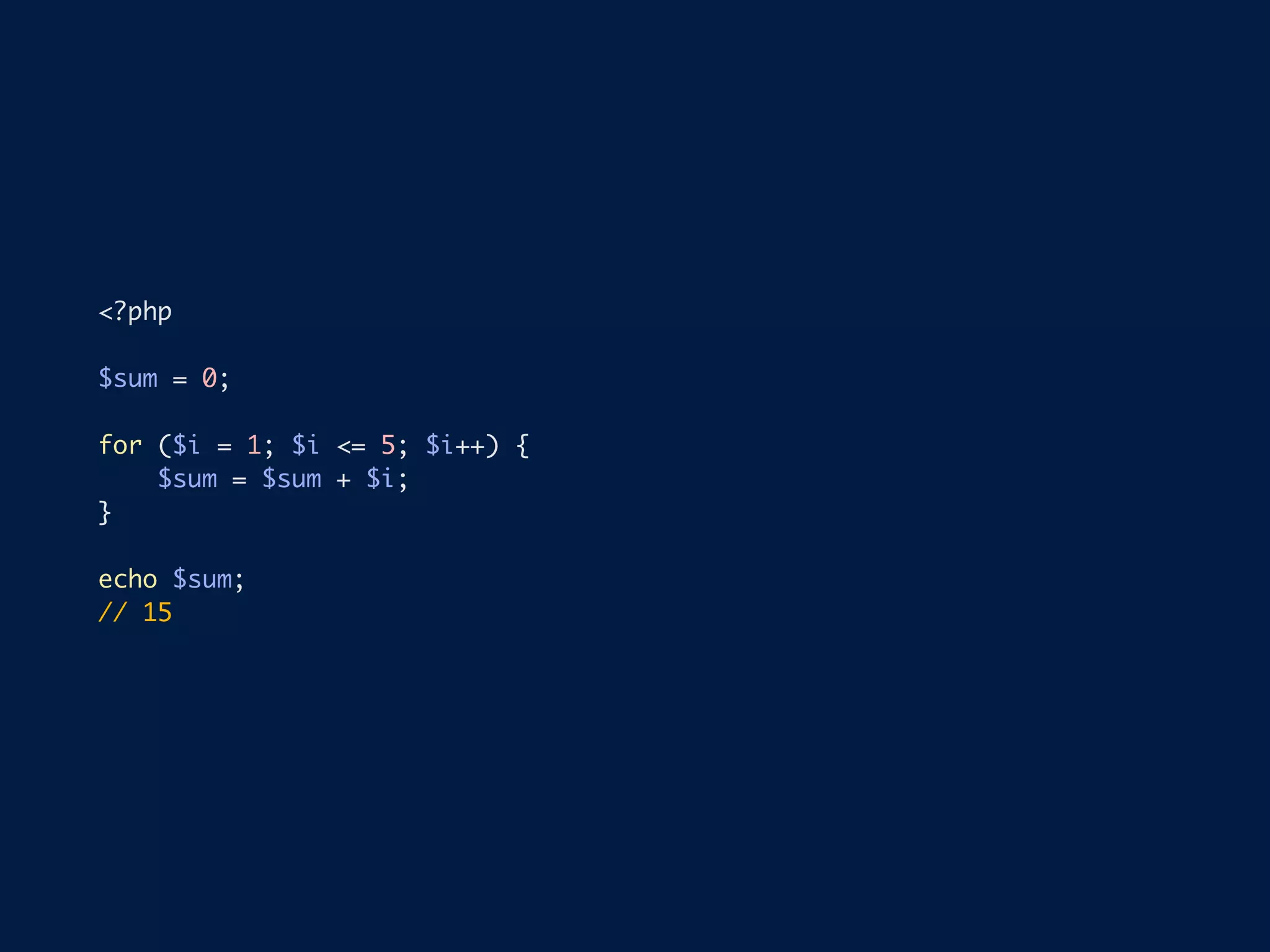
![-module(math).
-export([sum/1]).
sum(Number) ->
Sum = 0,
Numbers = lists:seq(1, Number),
lists:foreach(
fun(N) ->
Sum = Sum + N
end,
Numbers
),
Sum.
math:sum(5).
no return
keyword
** exception error: no match of right hand side value 1](https://image.slidesharecdn.com/beingfunctionalinphpsfugnl2016-160404194530/75/Being-functional-in-PHP-21-2048.jpg)
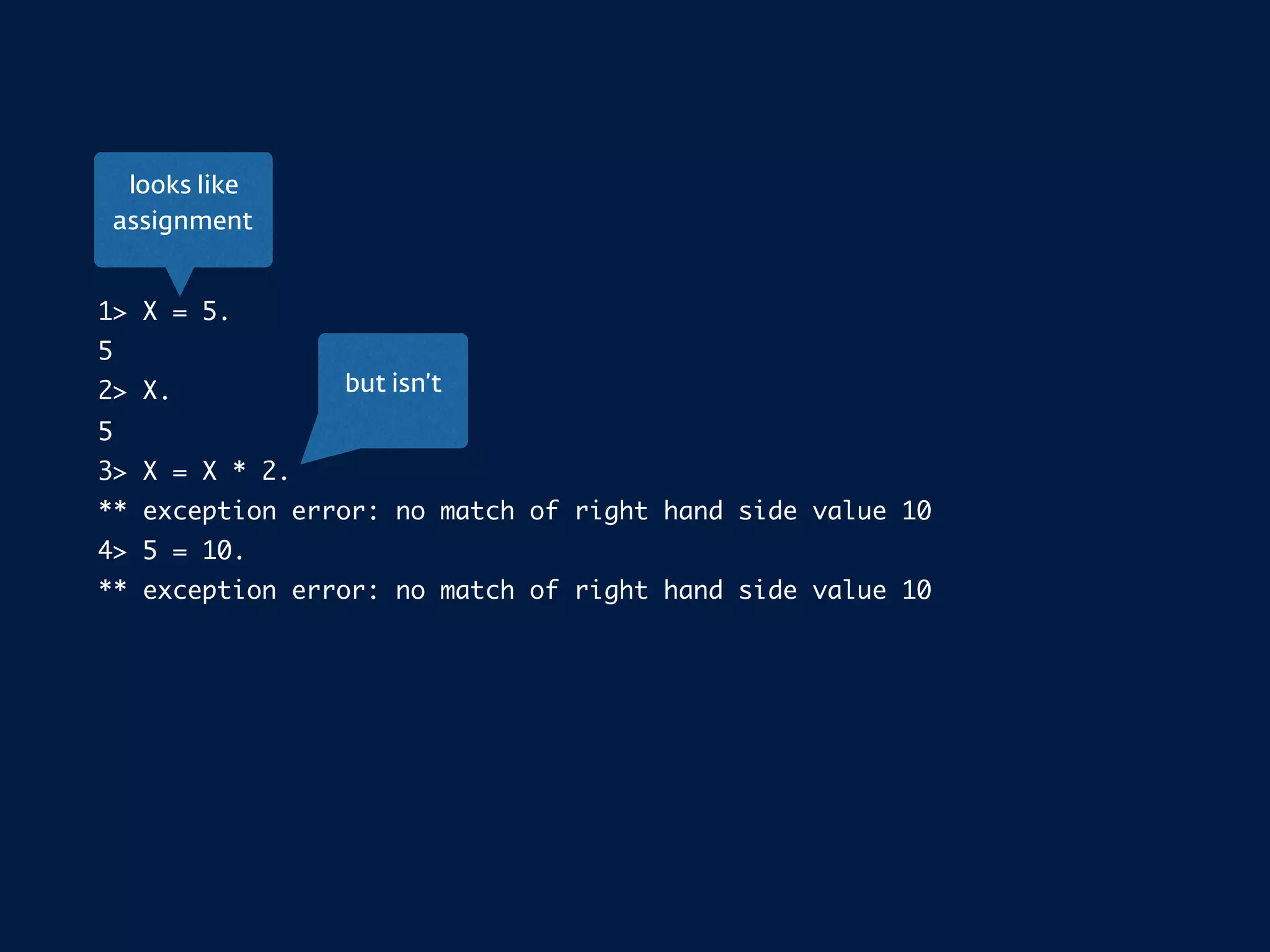
![-module(sum).
-export([sum2/1]).
sum2(Number) ->
List = lists:seq(1, Number),
sum2(List, 0).
sum2([], Sum) -> Sum;
sum2([H|T], Sum) -> sum2(T, H + Sum).
3> sum:sum2(5).
15
empty list
separate head and tail recurse
pattern
matches](https://image.slidesharecdn.com/beingfunctionalinphpsfugnl2016-160404194530/75/Being-functional-in-PHP-23-2048.jpg)
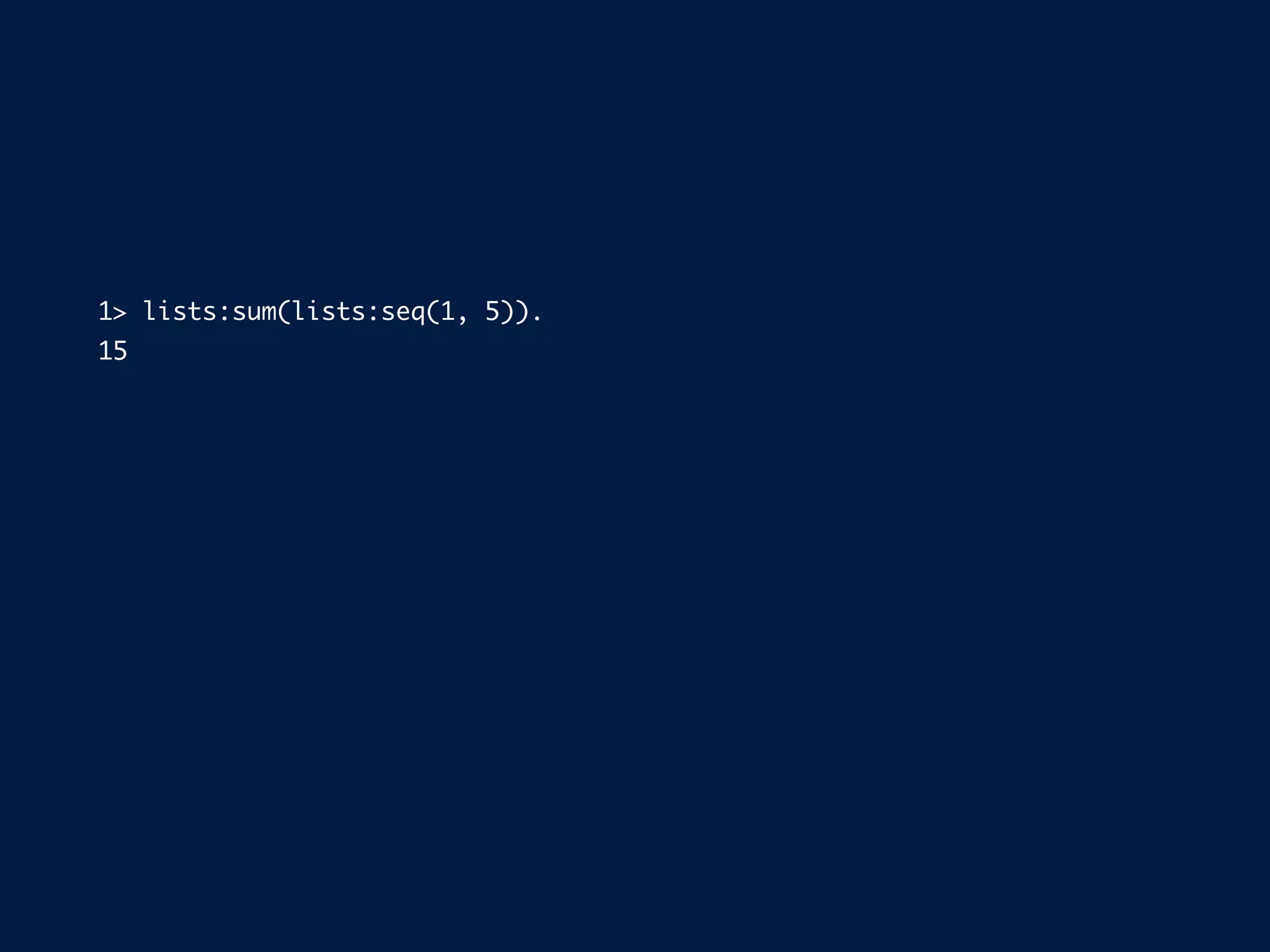

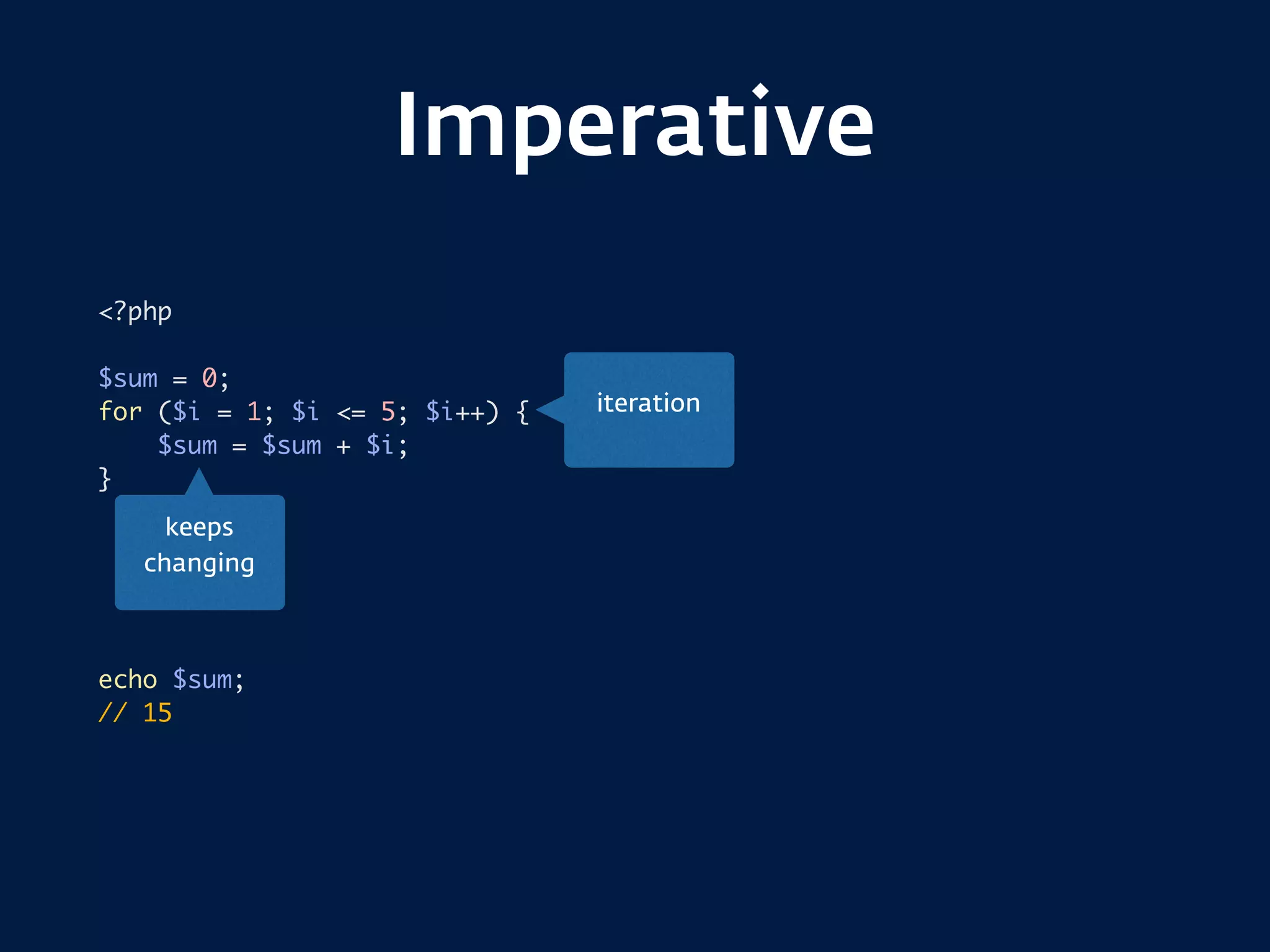
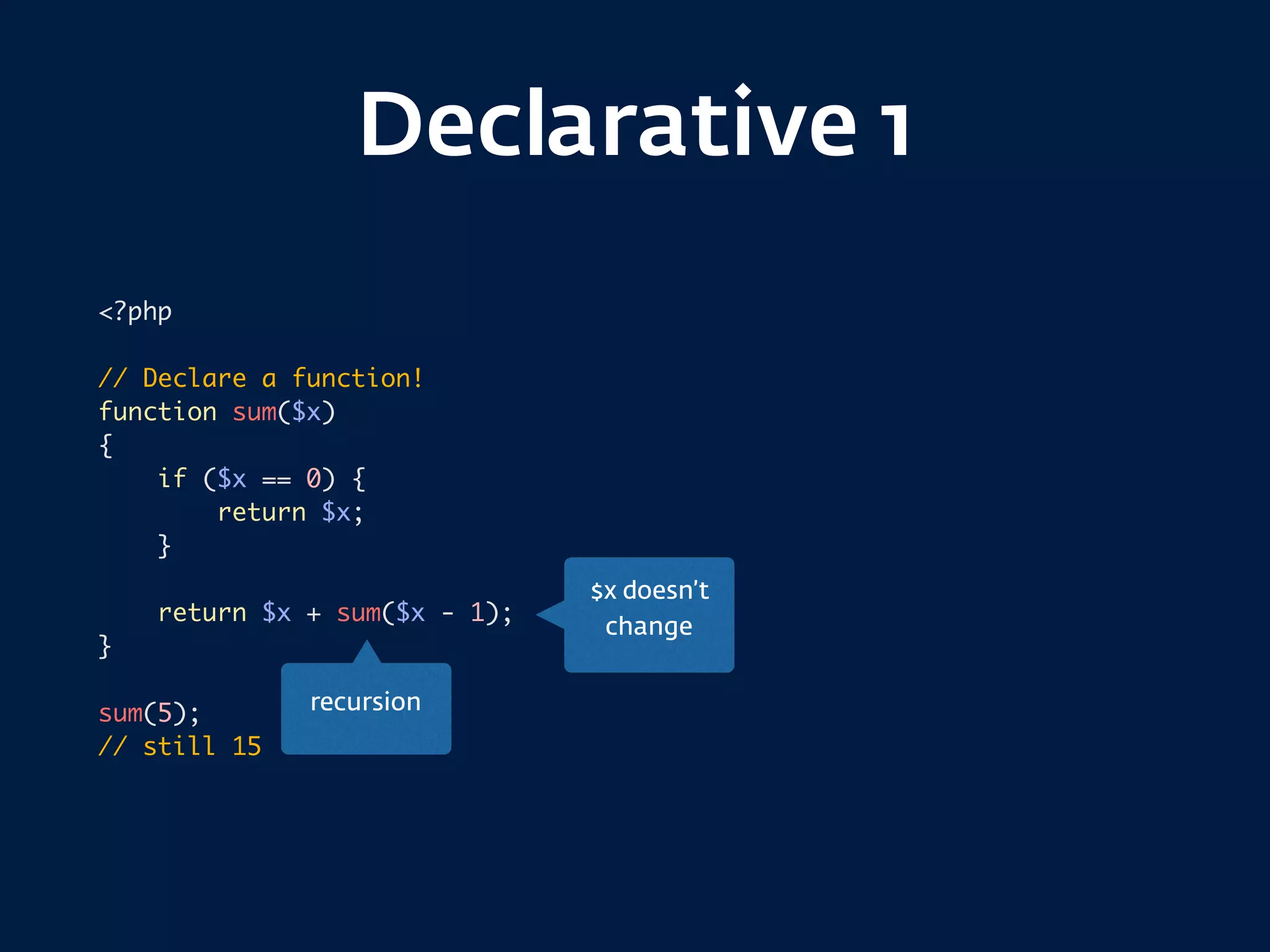
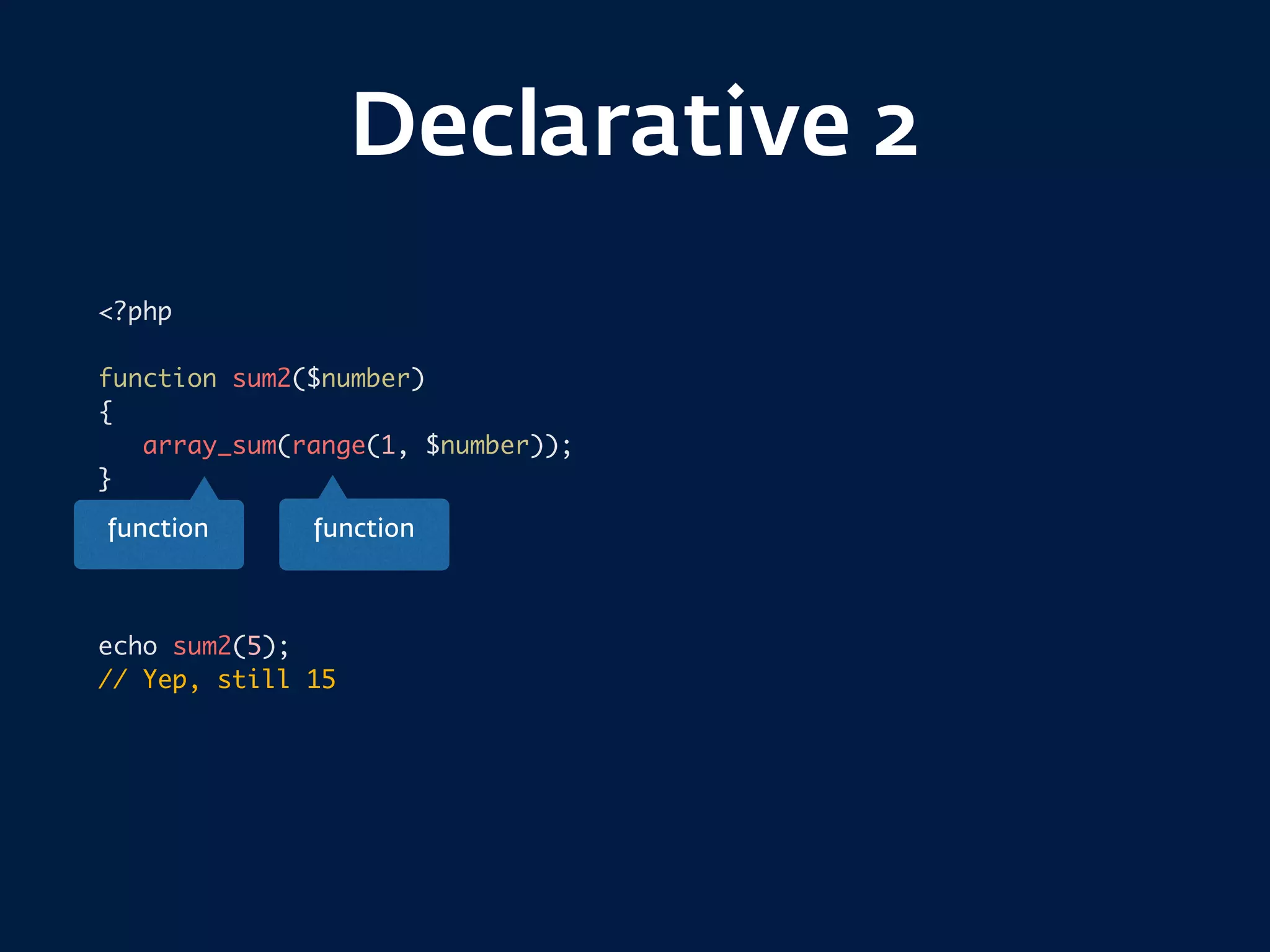

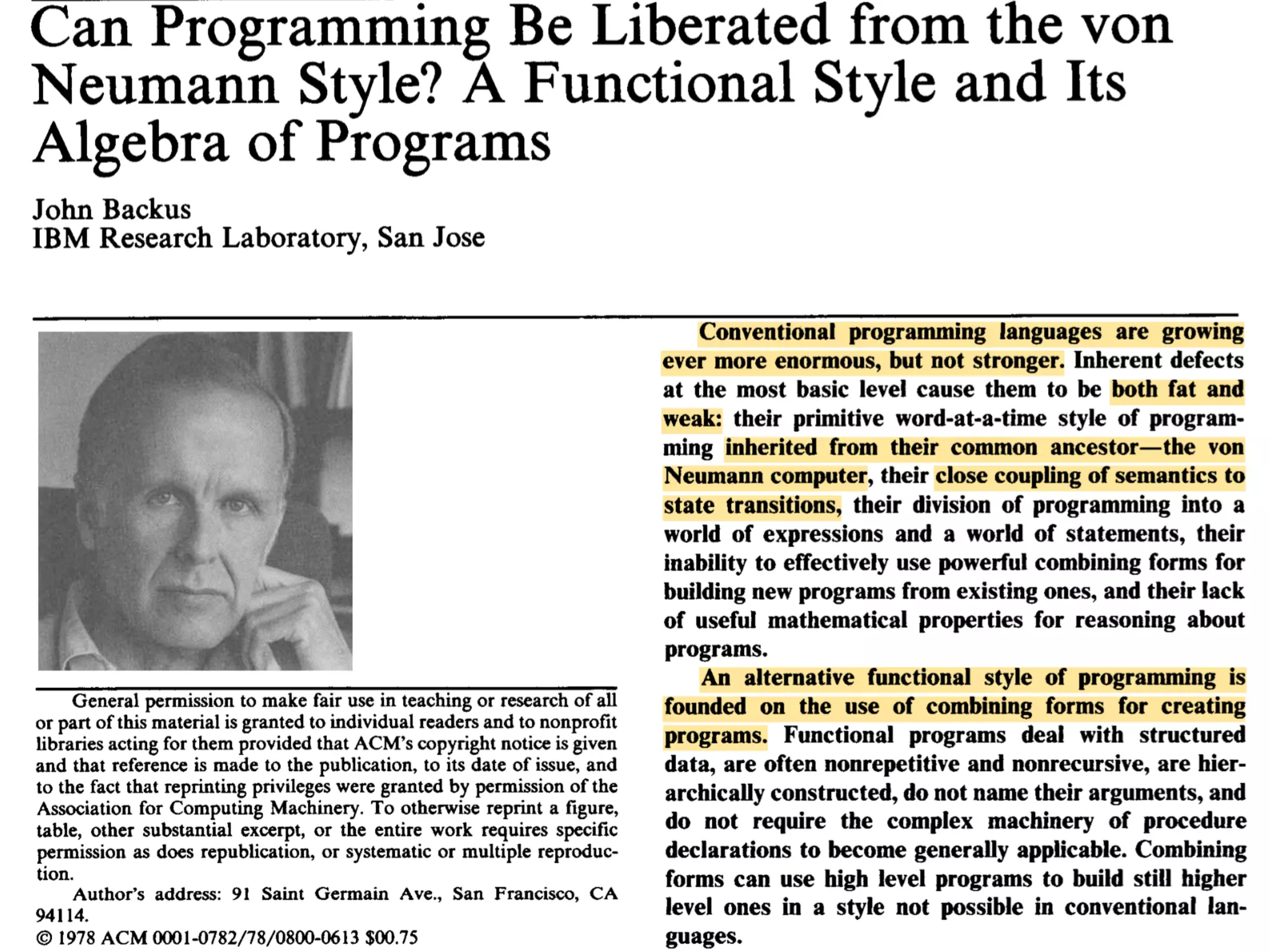
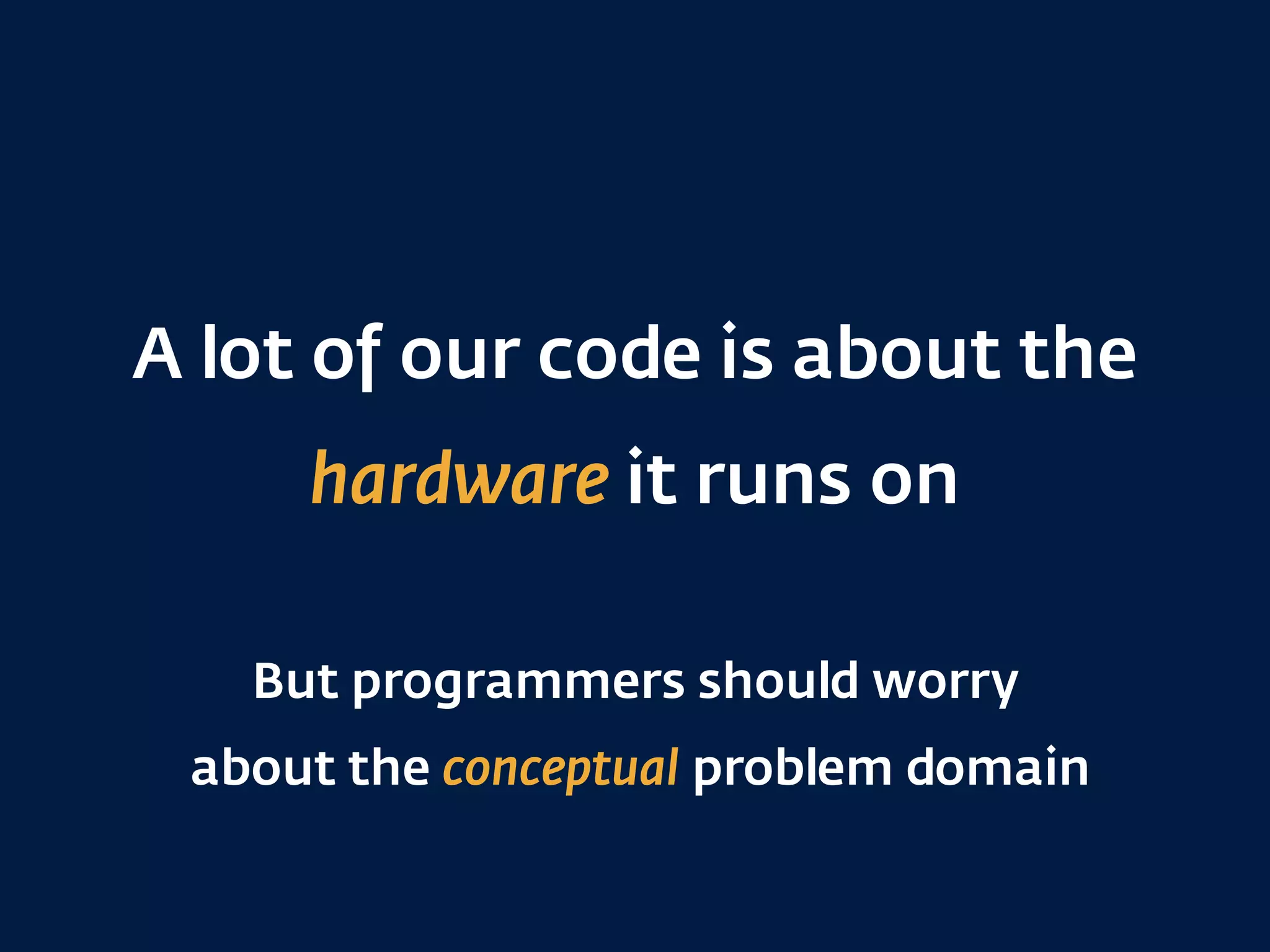
![Recursion
-module(math).
-export([fac/1]).
fac(0) -> 1;
fac(N) -> N * fac(N - 1).
1> math:fac(9).
362880](https://image.slidesharecdn.com/beingfunctionalinphpsfugnl2016-160404194530/75/Being-functional-in-PHP-32-2048.jpg)
![Recursion fail
-module(math).
-export([fac/11]).
fac(0) -> 1;
fac(N) -> N * fac(N - 1).
%% fac(9) = 9 * fac(9 - 1)
%% = 9 * 8 * fac(8 - 1)
%% = 9 * 8 * 7 * fac(7 - 1)
%% = 9 * 8 * 7 * 6 * fac(6 - 1)
%% = 9 * 8 * 7 * 6 * 5 * fac(5 -1)
%% = 9 * 8 * 7 * 6 * 5 * 4 * fac(4 - 1)
%% = 9 * 8 * 7 * 6 * 5 * 4 * 3 * fac(3 - 1)
%% = 9 * 8 * 7 * 6 * 5 * 4 * 3 * 2 * fac(2 - 1)
%% = 9 * 8 * 7 * 6 * 5 * 4 * 3 * 2 * 1 * fac(1 - 1)
%% = 9 * 8 * 7 * 6 * 5 * 4 * 3 * 2 * 1 * 1
%% = 9 * 8 * 7 * 6 * 5 * 4 * 3 * 2 * 1
%% = 9 * 8 * 7 * 6 * 5 * 4 * 3 * 2
%% = 9 * 8 * 7 * 6 * 5 * 4 * 6
%% = 9 * 8 * 7 * 6 * 5 * 24
%% = 9 * 8 * 7 * 6 * 120
%% = 9 * 8 * 7 * 720
%% = 9 * 8 * 5040
%% = 9 * 40320
%% = 362880
10 terms in
memory](https://image.slidesharecdn.com/beingfunctionalinphpsfugnl2016-160404194530/75/Being-functional-in-PHP-33-2048.jpg)
![Tail recursion
-module(math).
-export([tail_fac/1]).
fac(0) -> 1;
fac(N) -> N * fac(N - 1).
tail_fac(N) -> tail_fac(N, 1).
tail_fac(0, Acc) -> Acc;
tail_fac(N, Acc) -> tail_fac(N - 1, N * Acc).
tail_fac(9) = tail_fac(9, 1).
tail_fac(9, 1) = tail_fac(9 - 1, 9 * 1).
tail_fac(8, 9) = tail_fac(8 - 1, 8 * 9).
tail_fac(7, 72) = tail_fac(7 - 1, 7 * 72).
tail_fac(6, 504) = tail_fac(6 - 1, 6 * 504).
tail_fac(5, 3024) = tail_fac(5 - 1, 5 * 3024).
…
tail_fac(0, 362880) = 362880](https://image.slidesharecdn.com/beingfunctionalinphpsfugnl2016-160404194530/75/Being-functional-in-PHP-34-2048.jpg)


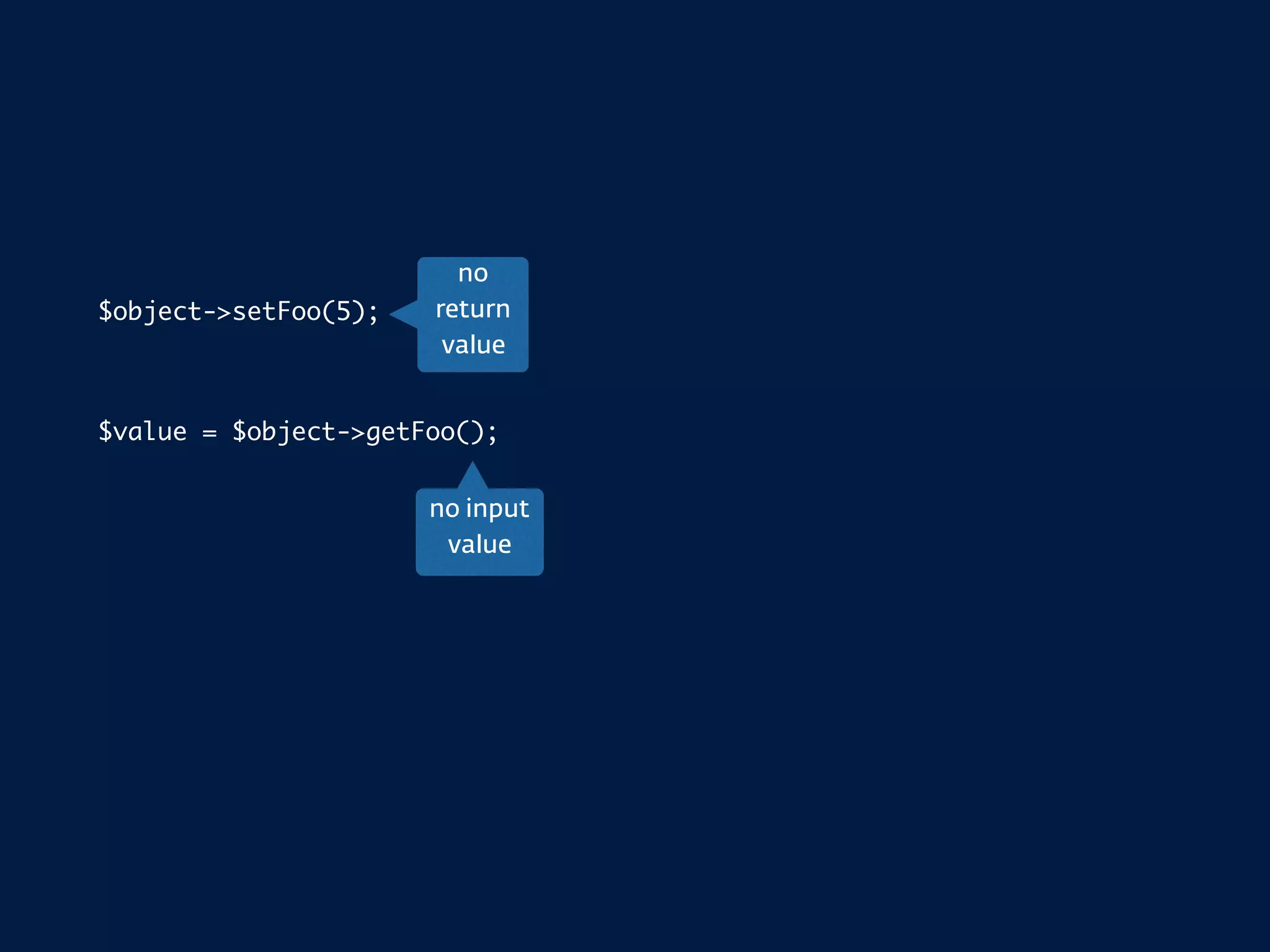
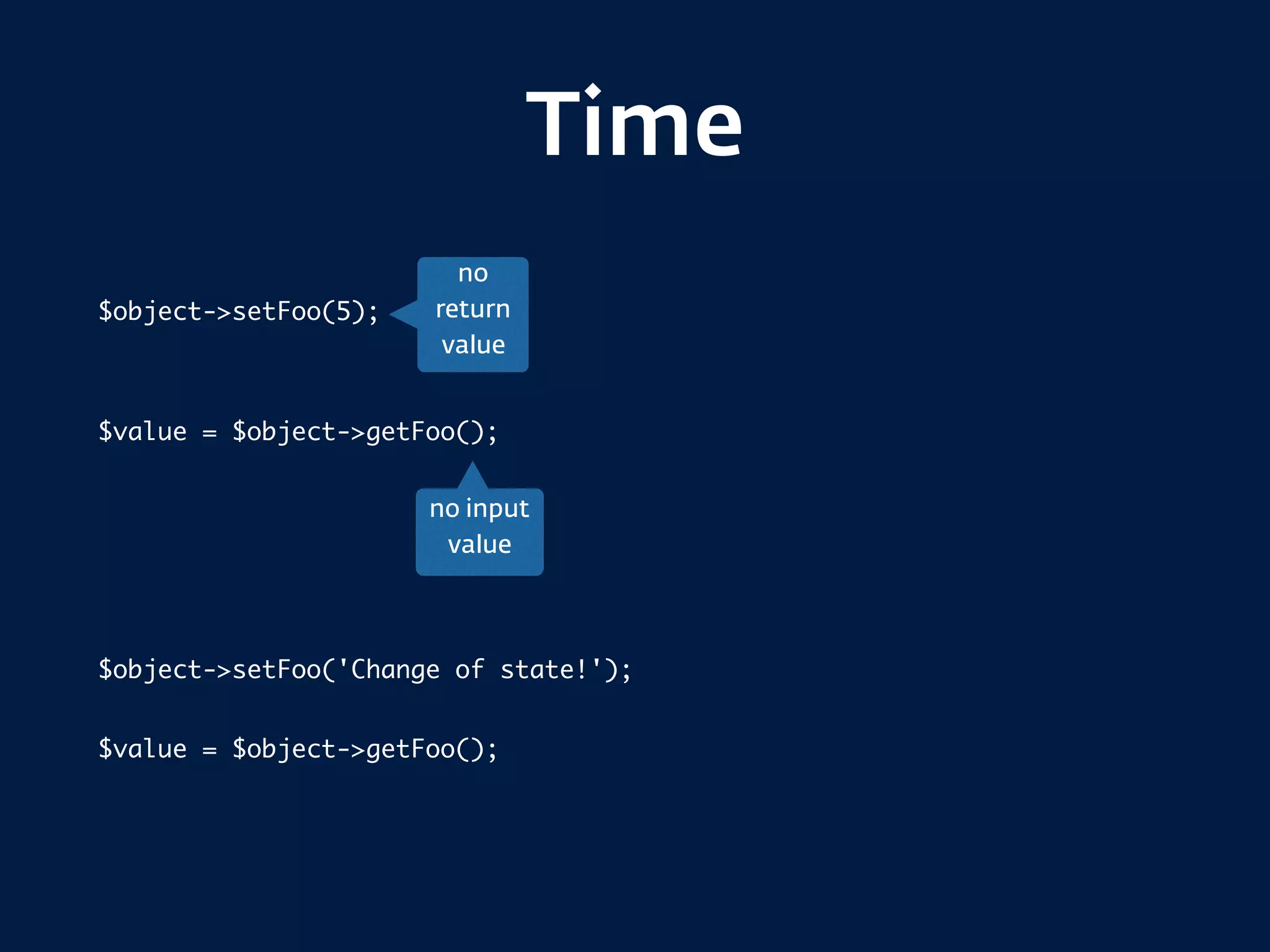
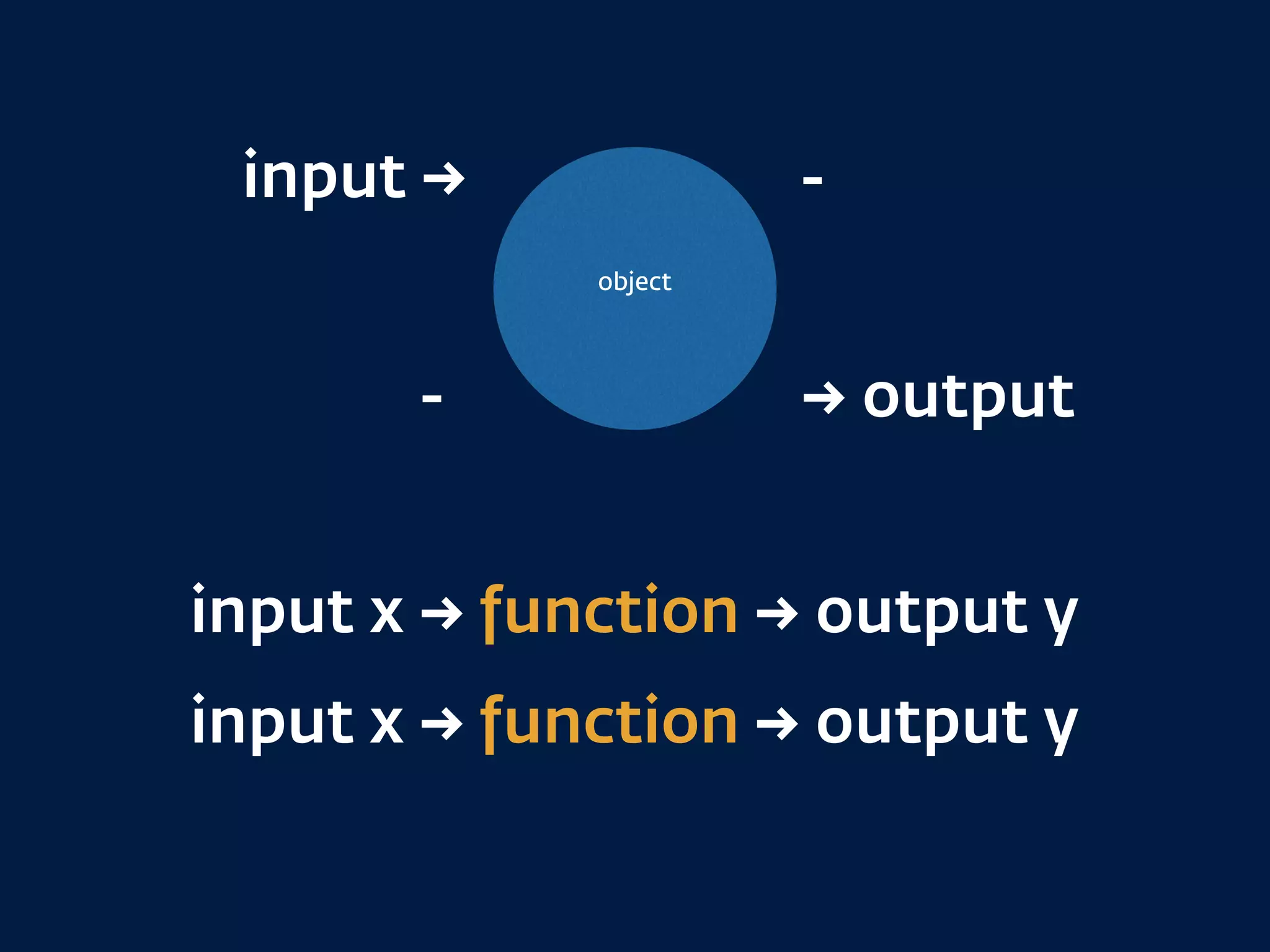
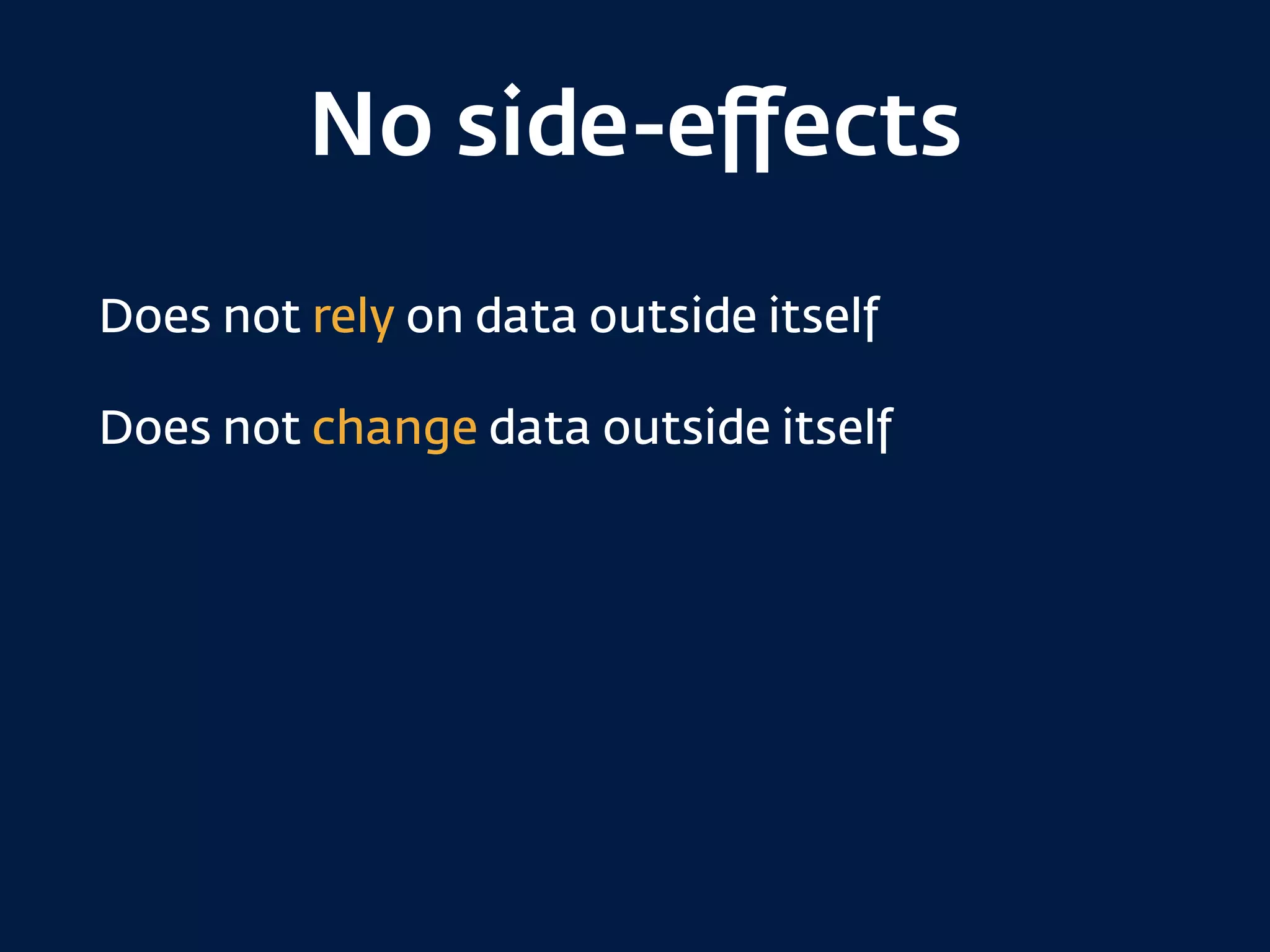
![%% records.hrl
-record(todo, {
status = reminder,
who = me,
text
}).
1> rr(records).
[todo]
2> Uhoh = #todo{status = urgent, text = "Feed cat!"}.
#todo{status = urgent,who = me,text = "Feed cat!"}
3> Done = Uhoh#todo{status = done}.
#todo{status = done,who = me,text = "Feed cat!"}
4> Uhoh.
#todo{status = urgent,who = me,text = "Feed cat!"}
still the
same
missing
objects?](https://image.slidesharecdn.com/beingfunctionalinphpsfugnl2016-160404194530/75/Being-functional-in-PHP-41-2048.jpg)
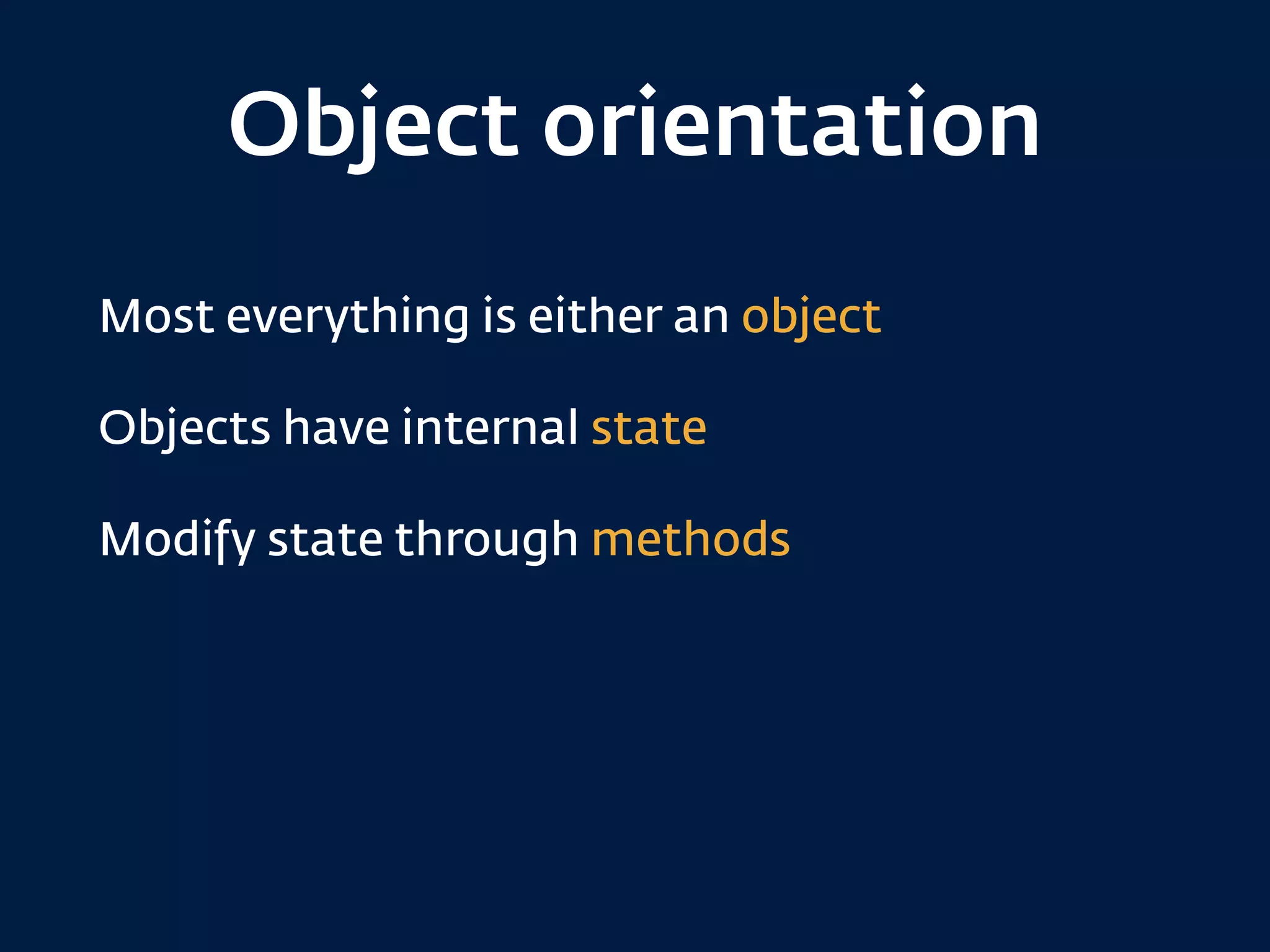
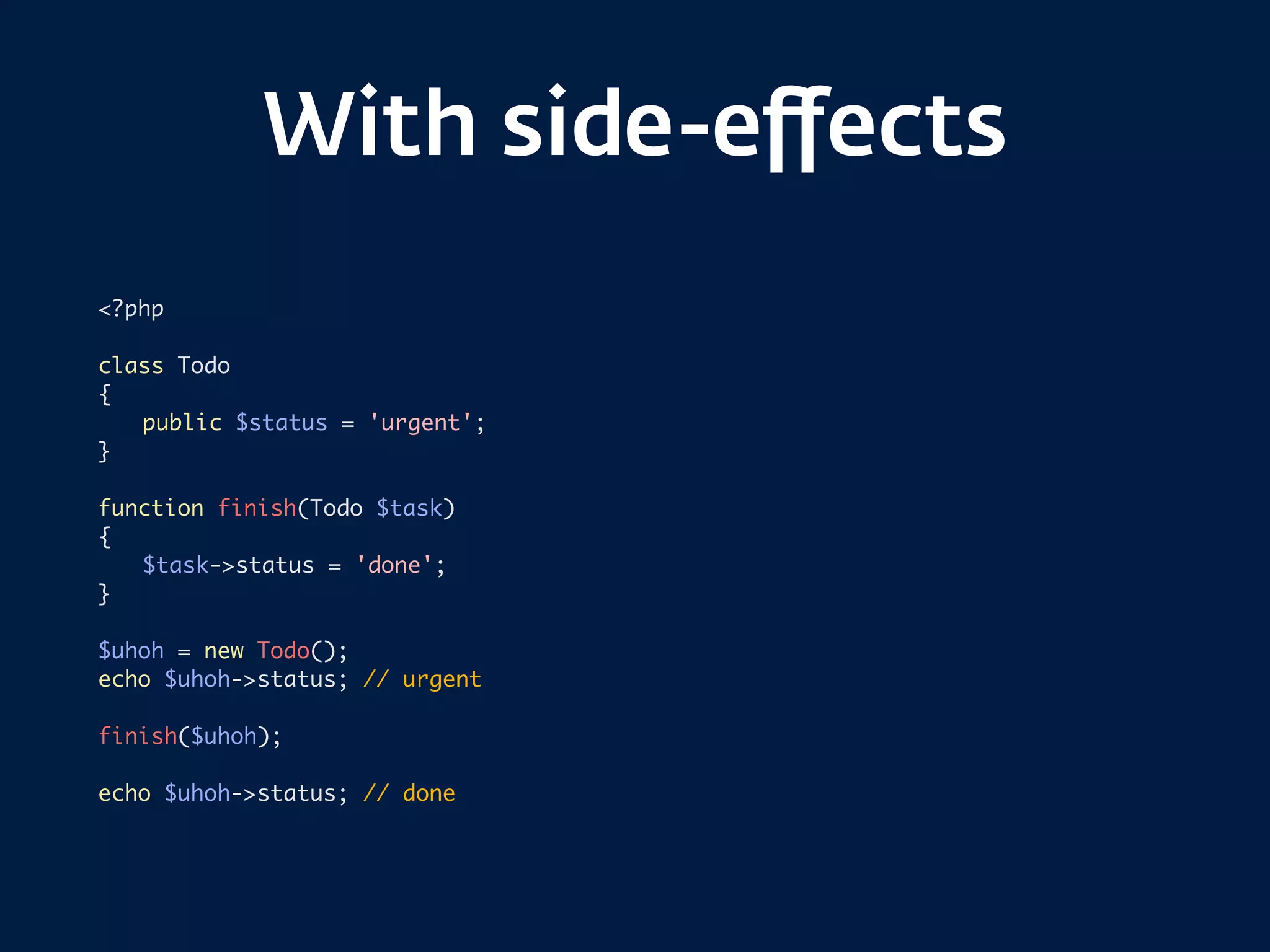
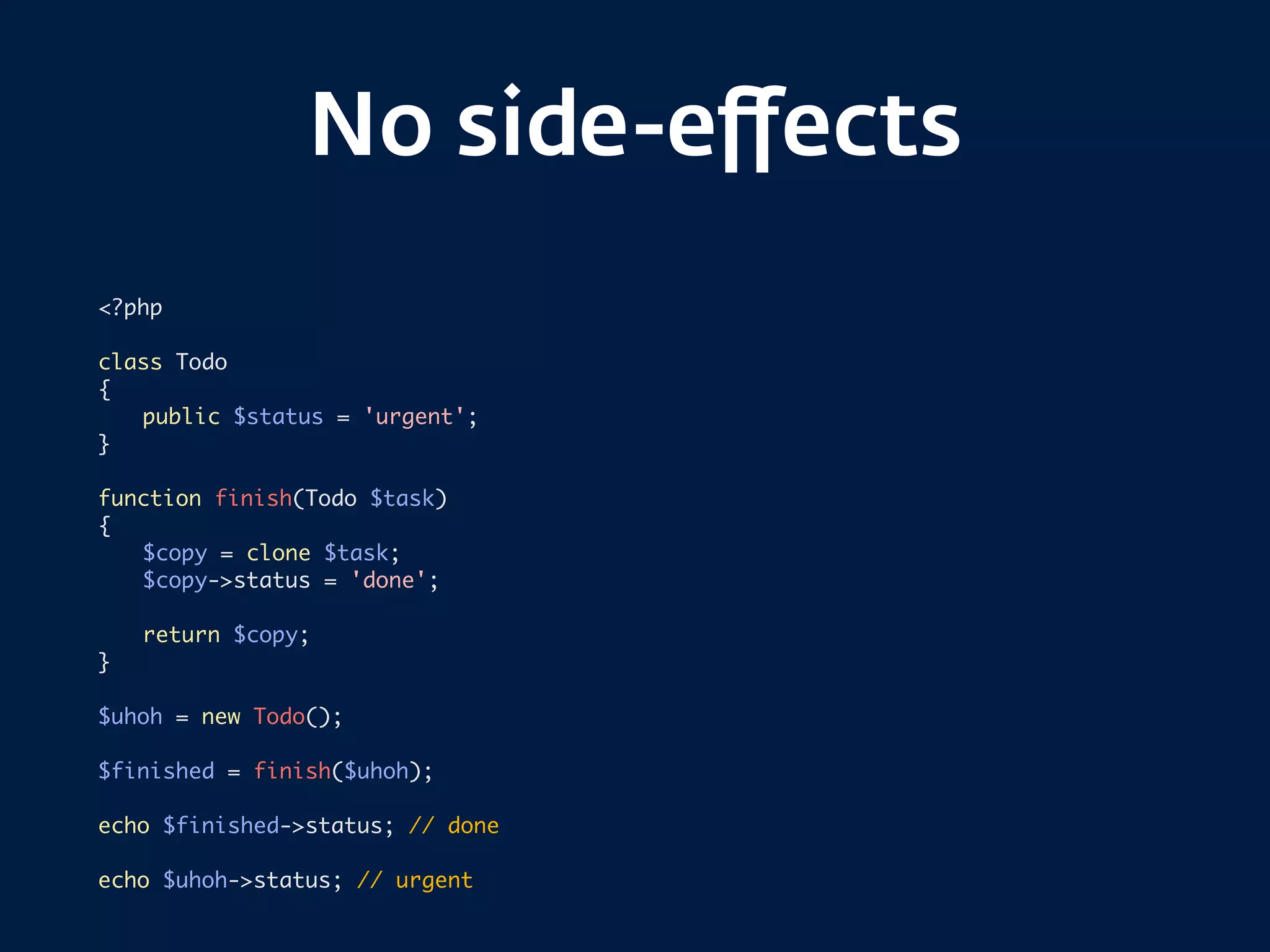

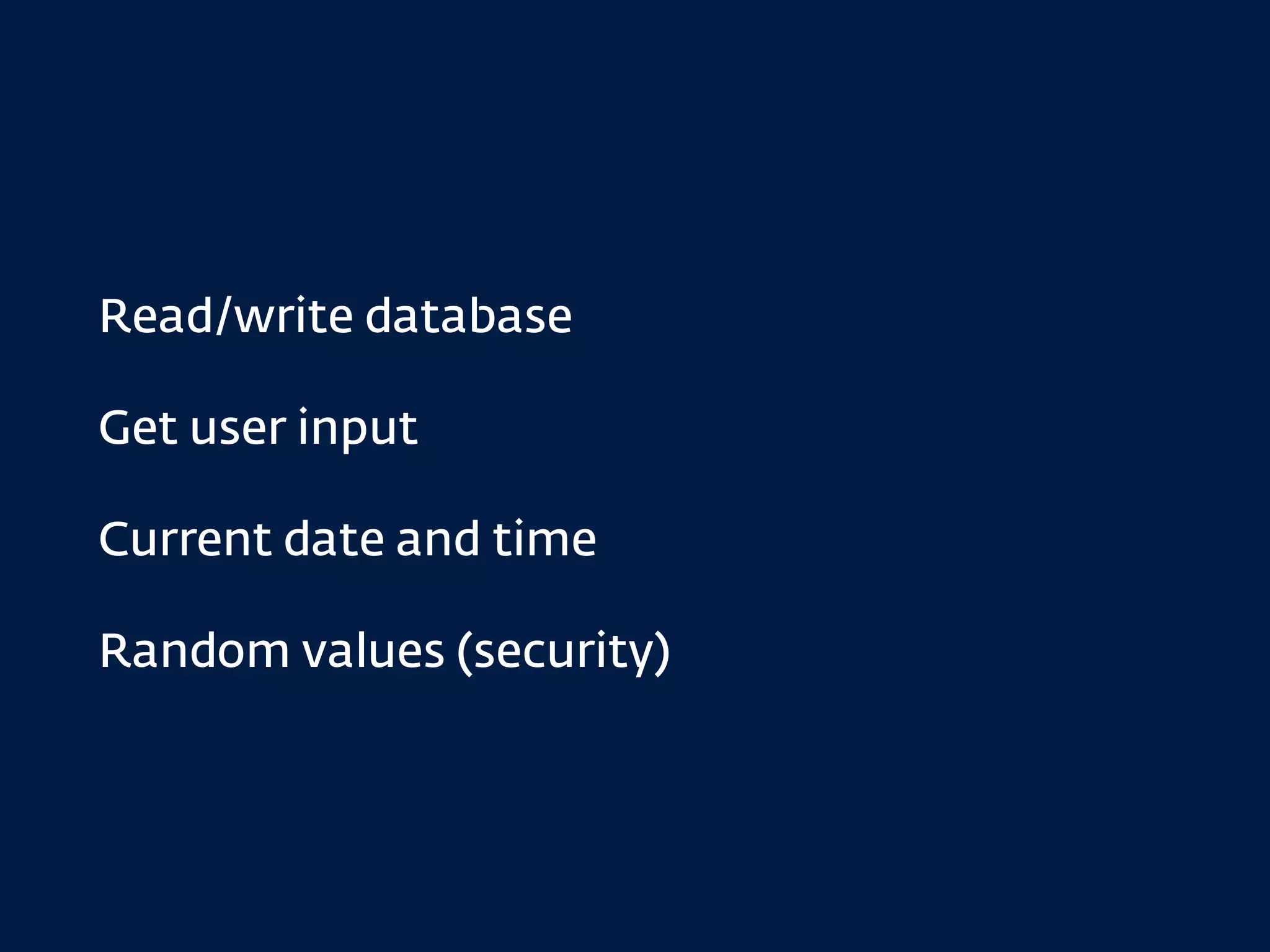
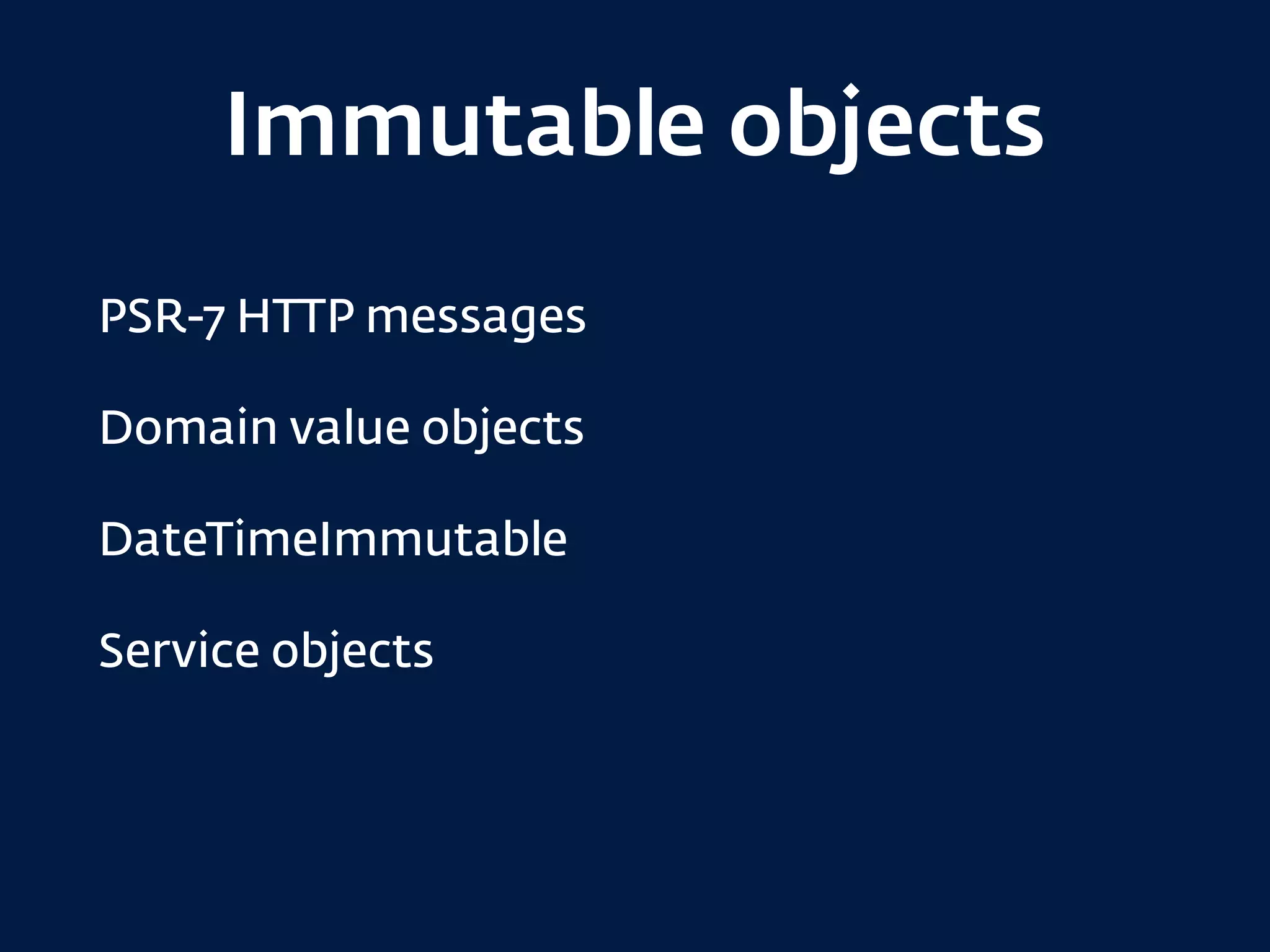

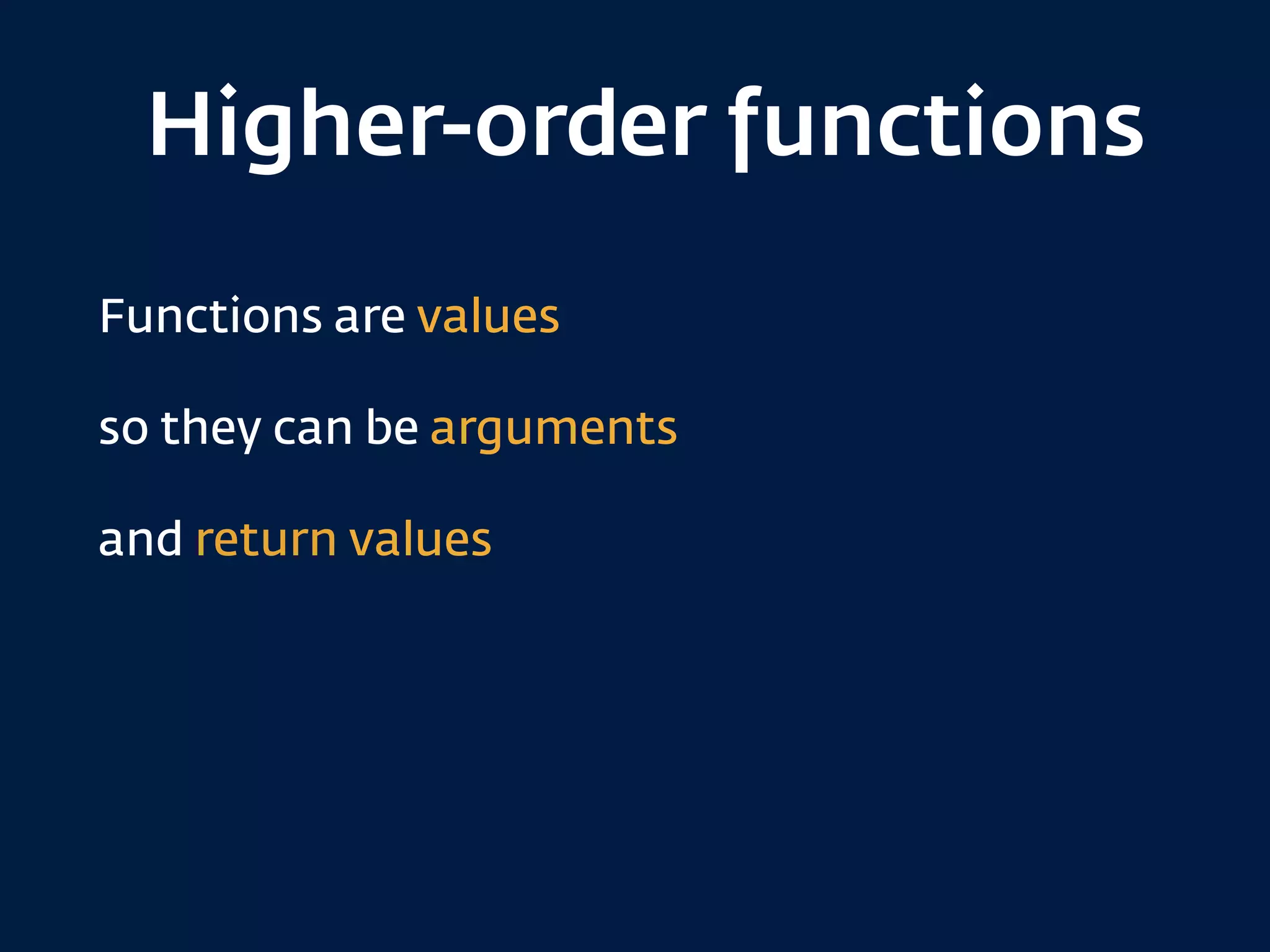
![<?php
$names = ['Billy', 'Bob', 'Thornton'];
$anonymise = anonymise('sha256');
var_dump(array_map($anonymise, $names));
// array(3) {
// [0]=>
// string(64) "85eea4a0285dcb11cceb68f39df10d1aa132567dec49b980345142f09f4cb05e"
// [1]=>
// string(64) "cd9fb1e148ccd8442e5aa74904cc73bf6fb54d1d54d333bd596aa9bb4bb4e961"
// [2]=>
// string(64) "d7034215823c40c12ec0c7aaff96db94a0e3d9b176f68296eb9d4ca7195c958e"
// }
function anonymise($algorithm)
{
return function ($value) use ($algorithm) {
return hash($algorithm, $value);
};
}
higher-order function
closure](https://image.slidesharecdn.com/beingfunctionalinphpsfugnl2016-160404194530/75/Being-functional-in-PHP-50-2048.jpg)
![Middleware
<?php
use PsrHttpMessageRequestInterface;
function add_header($header, $value)
{
return function (callable $handler) use ($header, $value) {
return function (
RequestInterface $request,
array $options
) use ($handler, $header, $value) {
$request = $request->withHeader($header, $value);
return $handler($request, $options);
};
};
}
$myStack = (new MiddlewareStack([
add_header('Silly-Header', 'and its value')
]);
call next
in stack
immutable
higher-order
function](https://image.slidesharecdn.com/beingfunctionalinphpsfugnl2016-160404194530/75/Being-functional-in-PHP-51-2048.jpg)
